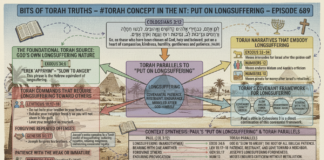This week’s Parashah, Parashat Beha’alotcha, Bamidbar / Numbers 8:1-9:14
God commands Moshe to cleanse the Cohanim (Priests) for service in the Mishkhan (Tabernacle) in 8:6
. Sprinkling purifying water, shaving their entire bodies, and washing their cloths, they will be clean
(8:7). An offering is made in the blood of a bull for sin and a grain offering
mixed with oil (8:8). Then the Cohanim were presented before God and before the
people (8:9) as a wave offering and they then were qualified to perform the service
before the Lord (8:11). Scripture goes on to say that the Lord will take the
Levites instead of every first born of Yisrael drawing a parallel with the Passover and the first born dying (
8:16). The Lord then spoke to Moshe instructing the Children of Yisrael to observe the Pesach (Passover)
festival saying that the Pesach festival is so important even a person who has touched a dead person and become unclean must still
observe the festival (9:9). While studying these scriptures, it is interesting
to note that the Hebrew text does not literally say touching a “dead person” as the English text implies. The text
says 9:10 daber el-benei yisrael lemor ish ish ki-yihye
tame lanefesh o vederekh rekhoka lakhem o ledoroteikhem veasa fesakh laadonai: meaning “unclean for
the soul/life” and not a “dead body.” What can we understand about God’s holy festival that is
so significant even if one becomes unclean by reason of the “life of a person” they still need to observe the
Pesach (Passover) Festival?
Read More here.








